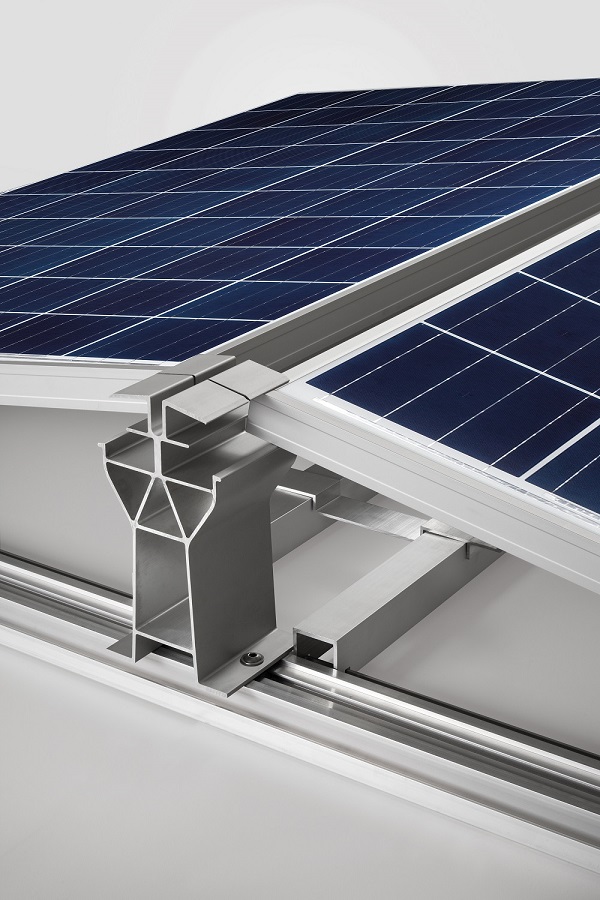Korean solar module maker Hanwha Q-Cells has filed patent infringement lawsuits against Chinese panel makers Jinko Solar and Longi Solar at Australia’s Federal Court, claiming its two rivals have used its patented solar cell passivation technology to increase the performance of their own products.
Last week, Hanwha Q-Cells lodged a patent infringement lawsuit against Jinko and Norwegian manufacturer REC in Germany, and two more against the same companies plus Longi in the U.S., based on the same claims. The patent infringement complaints lodged with the U.S. International Trade Commission and the U.S. District Court in Delaware, and with the Regional Court of Düsseldorf, are seeking court orders to prohibit Hanwha Q-Cells’ rivals from importing and selling the infringing products.
In a statement released by its Australian arm, Hanwha Q-Cells said the latest lawsuit was lodged with the same aim, to stop Chinese manufacturers Jinko and Longi from importing, marketing, and selling what Hanwha Q-Cells claims are infringing products in Australia.
“Intellectual property laws exist to incentivize innovation and protect innovations from being unfairly used, and we will vigorously defend our technology from infringement,” said Hanwha Q-Cells CEO Hee Cheul Kim. “The products supplied by these two companies are using technology that we believe is protected by our Australian patent and we have taken these actions both to protect our property rights and to give the market confidence that research and development initiatives to develop future technologies can continue. We are not prepared to tolerate the unauthorized distribution in Australia of products that incorporate our patented technology.”
Rivals’ response
Last week, Jinko categorically refuted allegations made by its Korean rival that it was using Hanwha Q-Cells’ passivation technology on its cells, adding it did not expect any disruption to normal operations as a result of the lawsuit.
“Based on Jinko Solar’s preliminary analysis of Hanwha’s complaints and the asserted patents, the company believes that the complaints are without technical or legal merit,” Jinko said in a statement at the time.
Noting it had not been notified of the legal action by its Korean rival at that point, monocrystalline module maker Longi claimed there was considerable uncertainty over the validity of the patents at the root of the lawsuits. The Xi’an-based company said the disputed patents related to atomic layer deposition (ALD) technology. Longi said it uses a plasma-enhanced chemical vapor deposition (PECVD) process.
As noted in the Hanwha Q-Cell statement, the Australian patent claims are not restricted to any method of manufacture, such as ALD or PECVD. Hanwha Q-Cell says the asserted claims of Australian patent – and its equivalents in the U.S. and Germany – are directed to a solar cell structure with a first dielectric layer including aluminum oxide and a second dielectric layer that contains hydrogen.
“The patented technology can be applied in many ways,” added the Hanwha Q-Cell statement. “A solar cell employing what is known as Passivated Emitter Rear Cell (PERC) technology is only one type of solar cells that may use technology covered by Australian patent no.2008323025 and its global equivalents.”
pv magazine has approached Jinko and Longi for comment on the Australian lawsuits.
This article was amended on 13/03/19 because the patent number quoted by Hanwha Q-Cell on its announcement of the Australian lawsuit was incorrect.
This content is protected by copyright and may not be reused. If you want to cooperate with us and would like to reuse some of our content, please contact: editors@pv-magazine.com.









1 comment
By submitting this form you agree to pv magazine using your data for the purposes of publishing your comment.
Your personal data will only be disclosed or otherwise transmitted to third parties for the purposes of spam filtering or if this is necessary for technical maintenance of the website. Any other transfer to third parties will not take place unless this is justified on the basis of applicable data protection regulations or if pv magazine is legally obliged to do so.
You may revoke this consent at any time with effect for the future, in which case your personal data will be deleted immediately. Otherwise, your data will be deleted if pv magazine has processed your request or the purpose of data storage is fulfilled.
Further information on data privacy can be found in our Data Protection Policy.